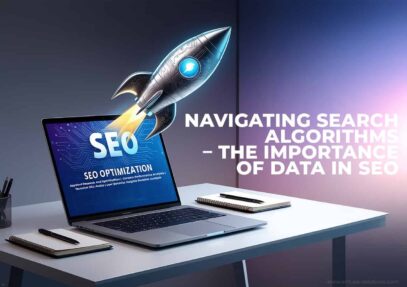
In an era where every business decision can be supported by data, cultivating a data-driven culture isn’t a luxury – it’s a competitive necessity. Organizations that prioritize data literacy across teams don’t just make better decisions – they outpace their peers in innovation, responsiveness, and value creation. But becoming a data-driven organization requires more than investing in dashboards and analytics tools. It’s about empowering people to think in numbers – to make data a natural part of how they work, collaborate, and lead.
Why Culture Matters More Than Tools
A company might have cutting-edge BI tools, advanced data pipelines, and talented data scientists. But if every day employees, managers, marketers, product teams – aren’t inclined to ask data-driven questions or interpret analytics meaningfully, the value of that data remains locked away.
A data-driven culture is one where:
- Data informs decision-making at every level.
- Employees proactively seek out metrics to guide actions.
- Teams view data as a strategic asset, not just a reporting requirement.
- Leadership models the behavior by relying on data over gut feel.
When this mindset is embedded across departments, businesses shift from reactive to proactive, instinctive to informed.
Building Blocks Of A Data-Driven Culture
1. Leadership Buy-In and Role Modeling
It starts at the top. Leadership must lead by example – using dashboards in meetings, requesting data-backed proposals, and being transparent about how decisions are driven by numbers. When leaders consistently refer to data, they normalize its use.
2. Democratizing Data Access
Data must be accessible, timely, and comprehensible to everyone. That means:
- Centralizing key metrics in tools like Power BI, Tableau, or Looker.
- Providing role-specific dashboards.
- Removing silos that restrict access.
- Training teams to self-serve rather than rely solely on analysts.
When employees can access the data they need without jumping through hoops, they’re more likely to use it.
3. Upskilling & Data Literacy
A major blocker to data adoption is lack of confidence. Employees may fear misinterpreting numbers or being judged for asking “basic” questions. Offering data literacy training – from understanding KPIs and correlation to hands-on Excel or SQL workshops – can bridge this gap.
Upskilling isn’t just for analysts. Product managers, marketers, and HR leaders – all roles benefit from becoming data-savvy.
4. Celebrate Curiosity & Critical Thinking
A data-driven culture thrives on asking the right questions, not just accepting numbers at face value. Encourage teams to dig deeper:
- Why did website conversions dip this week?
- Which customer segment has the highest churn rate?
- Are our assumptions supported by the data?
Celebrate not just correct answers but smart questions and thoughtful interpretation.
5. Make Data Part Of The Workflow
Don’t treat data analysis as a separate event. Instead, embed it into the tools and rituals employees already use:
- Show real-time KPIs on digital signage or dashboards.
- Start weekly meetings with data reviews.
- Integrate analytics with project management platforms like Jira or Asana.
- Use collaboration tools (like Slack or Teams) to share insights regularly.
This makes data a living part of work, not an afterthought.
Benefits Of A Data-Driven Team
When teams think in numbers, magic happens:
- Faster, Confident Decision-Making: No more waiting for approvals or guesswork.
- Improved Accountability: Clear metrics make performance measurable.
- Better Experimentation: A/B tests, pilots, and prototypes become grounded in measurable hypotheses.
- Customer-Centric Actions: Data reveals what customers actually do, not just what they say.
- Cross-Functional Alignment: Shared metrics ensure everyone rows in the same direction.
Companies like Amazon, Netflix, and Google aren’t just digital giants because of their tech – they’ve institutionalized a culture where data isn’t optional, it’s the default.
Sustaining The Culture
Culture isn’t built overnight. Here are ways to sustain a data-first mindset:
- Appoint data champions in every team to evangelize practices.
- Recognize and reward data-driven decisions during reviews or town halls.
- Continuously iterate tools and training based on employee feedback.
- Avoid data overload – keep dashboards relevant and focused on action.
Final Thoughts
In today’s fast-moving world, gut instinct alone won’t cut it. The businesses that succeed tomorrow are those investing in people as much as platforms, turning data from a static resource into a shared language. By building teams that think in numbers, you’re not just making smarter decisions – you’re future-proofing your organization.

















Comment